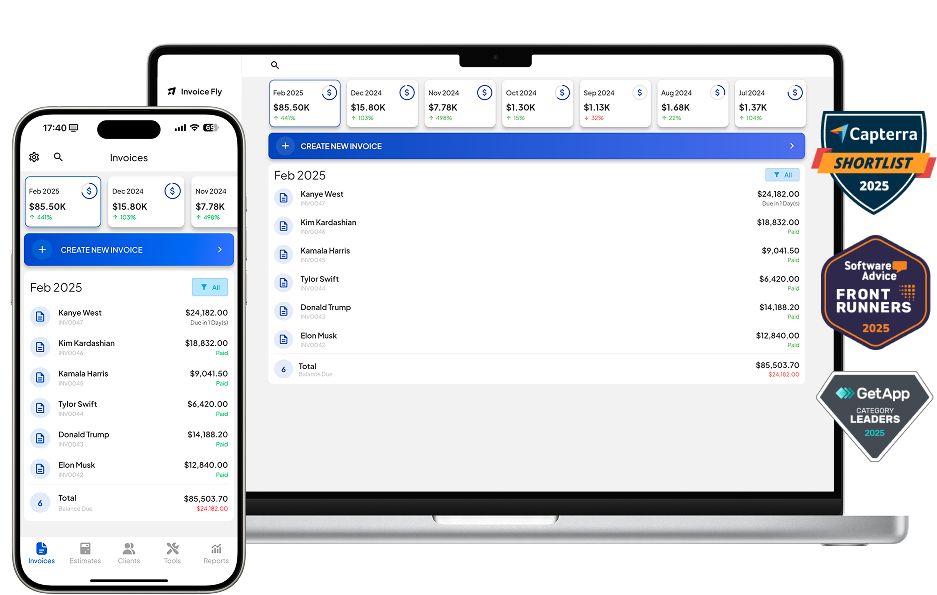- Home
- »
- Glossary Of Terms
- »
- Excise Tax
What is an Excise Tax?
<p>An <strong>excise tax</strong> is a specialized tax imposed on specific goods, services, activities, or privileges. Unlike broadly applied sales taxes, excise taxes target particular products or activities, often those associated with luxury items, environmental impacts, or public health considerations.</p>
<p>It represents a critical component of the tax landscape that affects numerous industries and products. Unlike more familiar taxes such as sales tax or income tax, excise taxes have unique characteristics and compliance requirements that businesses must understand to avoid costly penalties and ensure proper financial management.</p>

Key Characteristics
of Excise Taxes
Excise taxes are distinguished by several important features:
- Selective application: Applied to specific products or activities rather than all transactions
- Purpose-driven: Often designed to influence behavior or offset societal costs
- Calculation methods: Can be fixed amounts (per unit) or percentages (ad valorem)
- Collection point: Typically collected at the manufacturer or importer level rather than retail
- Invisibility to consumers: Often embedded in product prices rather than separately displayed
Common Types
of Excise Taxes
Excise taxes can be categorized based on their primary purpose:
Revenue-Generating Excise Taxes
- Fuel taxes (gasoline, diesel)
- Alcohol taxes (beer, wine, spirits)
- Tobacco taxes (cigarettes, cigars, vaping products)
- Telecommunications services taxes
Regulatory Excise Taxes
- Environmental taxes (emissions, chemical usage)
- Heavy vehicle use taxes
- Firearms and ammunition taxes
- Indoor tanning services taxes
Luxury or Sin Taxes
- Luxury vehicle taxes
- Aircraft taxes
- Foreign insurance taxes
- Gaming and gambling taxes
Excise Tax vs.
Other Common Taxes
Understanding how excise taxes differ from other tax types is crucial for proper business planning:
| Tax Type | Application | Visibility | Collection Point | Rate Structure | Primary Purpose |
|---|---|---|---|---|---|
| Excise Tax | Specific products/services | Often hidden in price | Manufacturer/Importer | Fixed amount or percentage | Revenue generation and behavior influence |
| Sales Tax | Most retail purchases | Separately stated at checkout | Retail point of sale | Percentage of sale price | General revenue |
| Value Added Tax (VAT) | Value added at each production stage | Separate line item on invoice | Multiple points in supply chain | Percentage | General revenue |
| Income Tax | Earnings/profits | Separate calculation | Direct payment to government | Progressive rates | General revenue |
The Importance of
Excise Tax Management
Proper excise tax management impacts multiple aspects of business operations and financial health.
Financial Impact on Businesses
Excise taxes create significant financial considerations:
- Cost structure implications: Affecting product pricing and margins
- Cash flow considerations: Requirements for tax deposits before revenue collection
- Budget planning: Necessitating awareness of upcoming rate changes
- Investment decisions: Influencing equipment and inventory choices
- Competitive positioning: Creating price disparities between jurisdictions
According to industry research, excise taxes can represent 20-50% of the total retail price for heavily taxed items like cigarettes and distilled spirits, making proper management critical for profitability.
Compliance Requirements and Risks
Failing to properly manage excise taxes creates significant exposures:
- Audit penalties: Substantial fines for underpayment or non-compliance
- Interest charges: Additional costs on underpaid taxes
- License revocation: Potential loss of ability to operate in regulated industries
- Criminal penalties: Potential for criminal charges in cases of willful evasion
- Reputation damage: Public record of tax compliance failures
Key Areas of
Excise Tax Management
Effective management of excise taxes requires attention to several critical areas:
1. Registration and Licensing
Most excise tax regimes require specific registrations:
- Obtaining appropriate federal permits (e.g., TTB permits for alcohol)
- Securing state-level licenses and registrations
- Maintaining specialized bonds or financial guarantees
- Renewing permits on required schedules
- Understanding activity-specific registration requirements
2. Product Classification and Tax Determination
Accurate tax calculation depends on proper classification:
- Understanding product and service categorizations
- Determining applicable tax rates for each category
- Accounting for jurisdictional variations in classification
- Monitoring changes to tax classifications and rates
- Managing exemptions and reduced rates where applicable
3. Reporting and Filing Requirements
Excise tax compliance involves specialized reporting:
- Understanding form requirements (e.g., Federal Form 720, TTB Form 5000.24)
- Meeting filing deadlines (often monthly or quarterly)
- Maintaining detailed transaction records
- Supporting audit-ready documentation
- Addressing amended return requirements when errors are discovered
4. Tax Payment Processes
Excise tax payment has unique considerations:
- Prepayment requirements for some tax types
- Electronic deposit requirements
- Semi-monthly deposit schedules for larger taxpayers
- Management of tax stamps or certificates (for certain products)
- Reconciliation of payments against liabilities
Benefits of Automated
Excise Tax Management
Modern invoicing software like Invoice Fly offers significant advantages for excise tax management:
Accuracy Improvements
Digital solutions provide:
- Automated tax calculation: Applying complex tax rules consistently
- Rate management: Keeping current with changing tax rates
- Classification support: Ensuring proper product categorization
- Exemption management: Properly applying tax-free scenarios
- Jurisdiction determination: Applying location-specific rules correctly
Efficiency Gains
Technology streamlines excise tax processes through:
- Automated reporting: Generating required filings from transaction data
- Record integration: Connecting excise taxes with broader accounting
- Documentation management: Maintaining required supporting information
- Payment processing: Facilitating electronic deposits and reconciliation
- Audit support: Quickly producing required documentation
Risk Reduction
Digital excise tax management reduces risks through:
- Compliance verification: Automatic checking against current regulations
- Calculation validation: Ensuring mathematical accuracy
- Filing calendar management: Preventing missed deadlines
- Audit trails: Maintaining complete history of tax decisions
- Change management: Adapting to new requirements and rates
ROI Comparison:
Manual vs. Automated Excise Tax Management
| Aspect | Manual Process | Automated Solution (like InvoiceFly) |
|---|---|---|
| Error Rate | 5-8% of transactions | Less than 1% error rate |
| Time Required | 15-20 hours per month | 2-4 hours per month |
| Audit Preparation | 3-5 days | Same-day response capability |
| Compliance Updates | Manual research required | Automatic updates |
| Cost of Errors | $5,000-$25,000+ per audit | Significantly reduced exposure |
| Staff Knowledge Required | Deep expertise needed | Guided processes for general staff |
How to Measure and Manage
Excise Tax Processes
Implementing an effective excise tax strategy involves several key practices:
Establishing KPIs for Excise Tax Management
Track these metrics to measure efficiency:
- Filing accuracy rate: Percentage of returns without amendments
- On-time filing percentage: Proportion of returns filed by deadline
- Audit findings: Dollar value of adjustments from examinations
- Process time: Hours spent on excise tax compliance monthly
- Cash flow impact: Days between tax payment and related revenue
Best Practices for Excise Tax Management
For Companies New to Excise Taxes
- Consult with specialized tax advisors during setup
- Invest in proper tax determination systems from the start
- Create clear documentation of all tax decisions
- Establish regular internal review processes
- Develop relationships with relevant tax authorities
For Established Excise Taxpayers
- Conduct regular compliance reviews and system testing
- Monitor legislative changes affecting tax rates and rules
- Implement consistent product classification processes
- Create clear audit response procedures
- Review tax strategy for optimization opportunities
Implementing Digital Excise Tax Solutions
For successful technology adoption:
- Select appropriate software: Choose solutions like InvoiceFly that incorporate excise tax capabilities
- Configure proper tax rules: Ensure system reflects your specific requirements
- Integrate with existing systems: Connect with inventory and financial platforms
- Train team members: Ensure staff understand the automated processes
- Verify results: Test system outputs against known tax scenarios
FAQs about Excise Taxes
Excise tax applicability varies significantly by product type and jurisdiction. Common categories include fuel, alcohol, tobacco, firearms, heavy vehicles, and certain luxury items.
To determine applicability, first check federal requirements through agencies like the IRS, TTB (Alcohol and Tobacco Tax and Trade Bureau), or EPA.
Then verify state and local requirements, which may tax additional categories. For complex or borderline products, consider requesting a written determination from the relevant tax authority. Software solutions can help by maintaining updated tax applicability rules across jurisdictions.
Penalties for excise tax non-compliance are typically more severe than those for other tax types. Federal penalties often include a failure-to-file penalty (5% of unpaid tax per month up to 25%), failure-to-pay penalty (0.5% per month), and interest charges. In cases of willful evasion, criminal penalties including imprisonment may apply.
Additional consequences include potential loss of business licenses, supplier relationship damage, and audit expansion to other tax areas. Specialized excise tax software significantly reduces these risks by automating compliance processes.
Individuals: Only for business-related purchasesFor tax purposes: Not always - the IRS and other tax authorities typically require itemized receipts.
Tax-free transactions require careful documentation and often pre-approval. Most excise regimes allow tax-free sales for specific purposes (exports, sales to government entities, or for further manufacturing).
These require the seller to collect specific exemption documentation before the transaction, such as federal Form 637 registrations or state-specific exemption certificates. Each exempt transaction must be fully documented and reported on tax returns even though no tax is due.
Automated systems help manage this complex documentation and reporting process while ensuring compliance.
The variation in state excise tax rates is extreme - for example, cigarette excise taxes range from $0.17 per pack (Missouri) to $4.50 per pack (District of Columbia).
Beyond rate differences, states vary in how taxes are calculated (per unit vs. percentage), when they're applied (distribution vs. retail), and what exemptions exist. Multi-state businesses should implement automated tax solutions that maintain current rates and rules for each jurisdiction.
Without automation, maintaining rate tables and determination rules across multiple states quickly becomes unmanageable and error-prone.

Other Free Resources

Try Invoice Fly Today
- Send quotes & invoices in seconds
- Collect card & online payments
- Receive instant notifications
- Win more jobs

